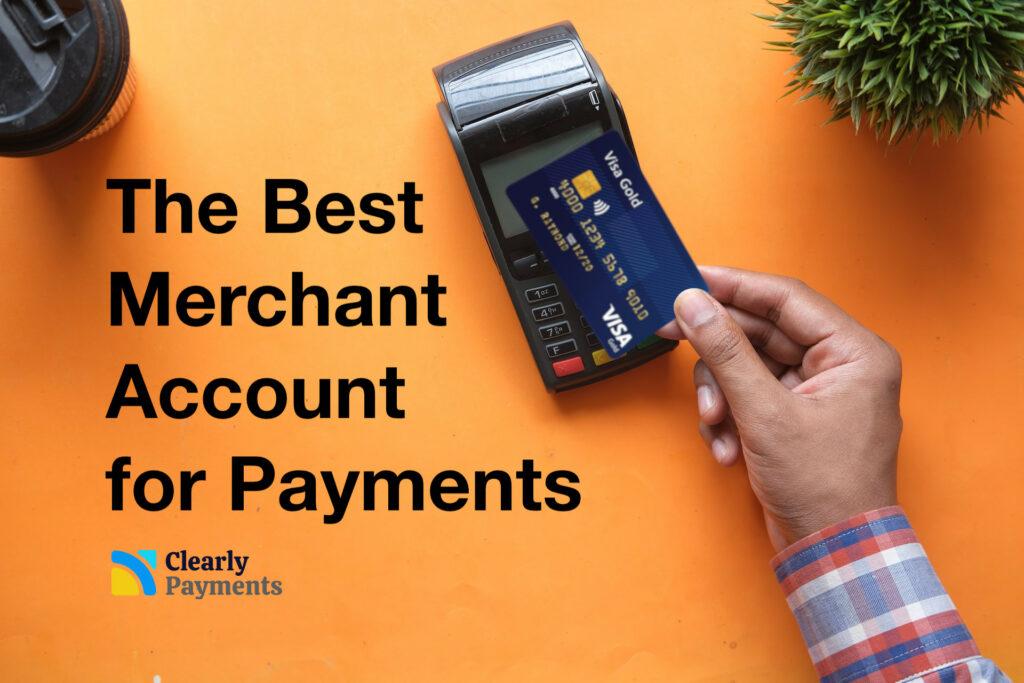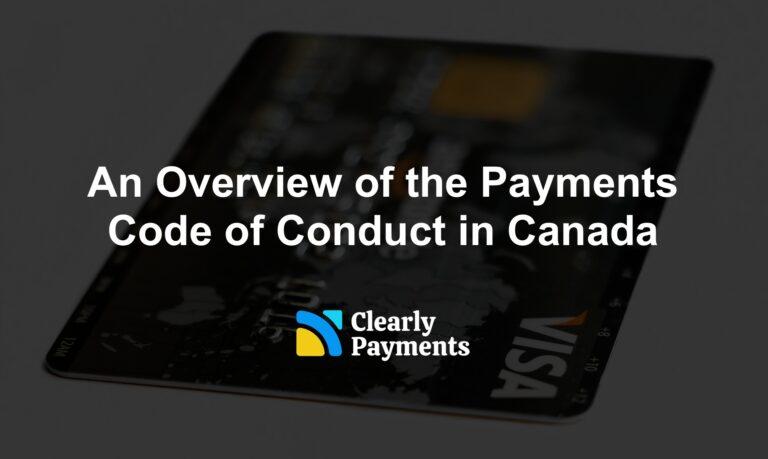A merchant account is a type of bank account that enables businesses to accept and process digital payments, such as credit card (Visa, MasterCard, etc) and debit card transactions. It serves as an intermediary between the business, the payment processor, and the customer’s bank.
When a customer makes a payment using a credit card or debit card, the funds are transferred from the customer’s bank to the merchant account. The merchant account provider then facilitates the transfer of those funds to the business owner’s bank account, after deducting any applicable fees or transaction costs. Here’s a full article on how a merchant account works.
To obtain a merchant account, businesses are typically required to go through an application and underwriting process. The provider evaluates the business’s financial stability, creditworthiness, and risk profile to assess its eligibility for a merchant account.
What does a merchant account do?
A merchant account allows businesses to accept payments from customers through various payment methods, such as credit cards, debit cards, and electronic transfers. Here’s a breakdown of what a merchant account does:
Payment Processing: A merchant account enables businesses to process payments from customers using different payment methods. When a customer makes a purchase, the funds are securely transferred from the customer’s account to the merchant’s account, ensuring a smooth transaction.
Authorization and Verification: The merchant account facilitates the authorization and verification process to ensure the validity of each transaction. This involves verifying the customer’s payment details, checking for sufficient funds, and confirming the transaction’s legitimacy.
Funds Settlement: Once a transaction is authorized and verified, the funds are settled into the merchant’s account. The settlement process involves the transfer of funds from the customer’s account to the merchant’s account, typically within a predetermined time frame, such as daily or weekly settlements.
Payment Gateway Integration: A merchant account often integrates with a payment gateway, which acts as a secure bridge between the merchant’s website or point-of-sale system and the payment networks. The payment gateway encrypts and transmits the customer’s payment information to the appropriate financial institutions for processing.
Risk Management and Fraud Prevention: Merchant accounts may include risk management tools and fraud prevention measures to protect both the merchant and the customer. These measures help identify and mitigate potential fraudulent transactions, reduce chargebacks, and enhance the security of payment processing.
Reporting and Analytics: Merchant accounts typically provide reporting and analytics features that give businesses insights into their payment activities. Merchants can track sales, transaction volumes, payment trends, and other relevant data to make informed business decisions and optimize their payment processes.
What makes a great merchant account
There are numerous things you should look out for when searching for the best merchant account for payment processing.
Flexible Payment Options
One of the defining features of the best merchant account is the ability to accept a wide range of payment options. From major credit and debit cards to alternative payment methods such as digital wallets or mobile payments, a versatile merchant account caters to the diverse preferences of customers. This flexibility empowers businesses to capture sales opportunities from a broader customer base and adapt to evolving payment trends.
Competitive and Transparent Pricing
Pricing is a critical factor when selecting a merchant account, and the best ones offer competitive fees and transparent pricing structures. Look for providers that offer clear and upfront information about transaction fees, monthly charges, and any additional costs. The best merchant accounts strike a balance between affordability and value, providing businesses with a fair pricing model that aligns with their transaction volume and business needs.
Robust Security Measures
Security is paramount in the world of payment processing, and the best merchant accounts prioritize the protection of sensitive customer data. They employ industry-standard security measures, such as end-to-end encryption, tokenization, and fraud detection tools, to safeguard transactions and mitigate the risk of data breaches. Compliance with the Payment Card Industry Data Security Standard (PCI DSS) is a crucial indicator of a provider’s commitment to security.
Seamless Integration and Compatibility
Integration capabilities play a significant role in determining the quality of a merchant account. The best accounts seamlessly integrate with various point-of-sale (POS) systems, e-commerce platforms, and other software applications, ensuring a smooth and efficient payment process. Compatibility with existing infrastructure saves businesses time and resources, enabling them to focus on core operations without disruptions.
Excellent Customer Support
When technical or payment-related issues arise, responsive and reliable customer support becomes invaluable. The best merchant accounts offer prompt and knowledgeable customer support, assisting businesses in resolving challenges efficiently. Look for providers that offer multiple support channels, including phone, email, and live chat, and ensure that their support services align with your business hours and time zone.
Reputation and Reliability
Reputation and reliability are significant considerations when selecting a merchant account. Look for providers with a strong track record, positive customer reviews, and a reputation for trustworthy service. Consider the provider’s financial stability, as well as their longevity and experience in the payment industry. A reputable merchant account provider instills confidence and minimizes the risk of disruptions in payment processing.
The best merchant account
Finding the best merchant account should not be difficult. Here are the three recommendations based on the size of business.
Best merchant account for low revenue businesses: Square
Square has garnered significant attention by offering a convenient payment solution tailored for small businesses. Square is best for businesses that have less than $200,000 per year in revenue. In essence, Square is a third-party processor (i.e. aggregator) that excels in offering straightforward pricing plans and a plethora of business productivity software, often at no additional cost. It is not an actual dedicated merchant account which is one reason for the low fixed fees. Here’s an overview of how an aggregator compares to a merchant account.
Square’s pricing structure is renowned for its simplicity and transparency. The absence of long-term contracts or termination fees further solidifies Square’s reputation as a merchant-friendly payment solution.
Best merchant account for medium to large businesses: TCM
TCM presents a compelling offering for small, medium, and large businesses seeking a broad product set with affordable credit card processing services. TCM is best for businesses that have more than $200,000 per year in revenue.The company’s mission to reduce costs in the industry indicates a commitment to providing businesses with competitively priced solutions.
TCM has made commendable decisions regarding its pricing structure, making it an attractive option for high-volume businesses aiming to minimize processing expenses.
Best merchant account for global enterprises: Chase Payments
Merchants operating global established businesses will find Chase Payment Solutions to be a suitable option. Chase is best for businesses that have more than $50 million per year in revenue.Despite its size, Chase Payment Solutions offers an extensive range of products and services, making it a compelling choice for larger companies.
What sets Chase apart is that it acts as a direct processor, providing merchants with greater control and transparency over their payment transactions. As a large processor, Chase offers a robust infrastructure and a suite of services tailored to meet the needs of growing businesses.
Accept payments with a merchant account from TCM
- Lowest-cost processing in the industry
- Fund transfers in less than one day
- A full set of payment products to accept payment anytime, anywhere
- World-class customer service




